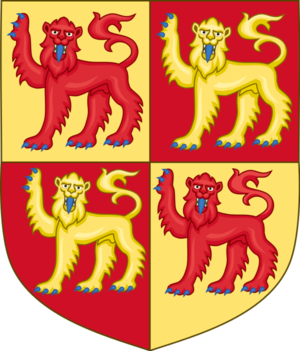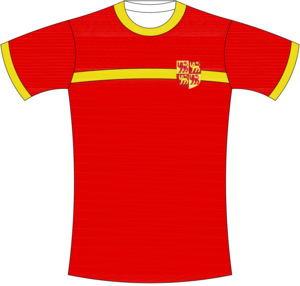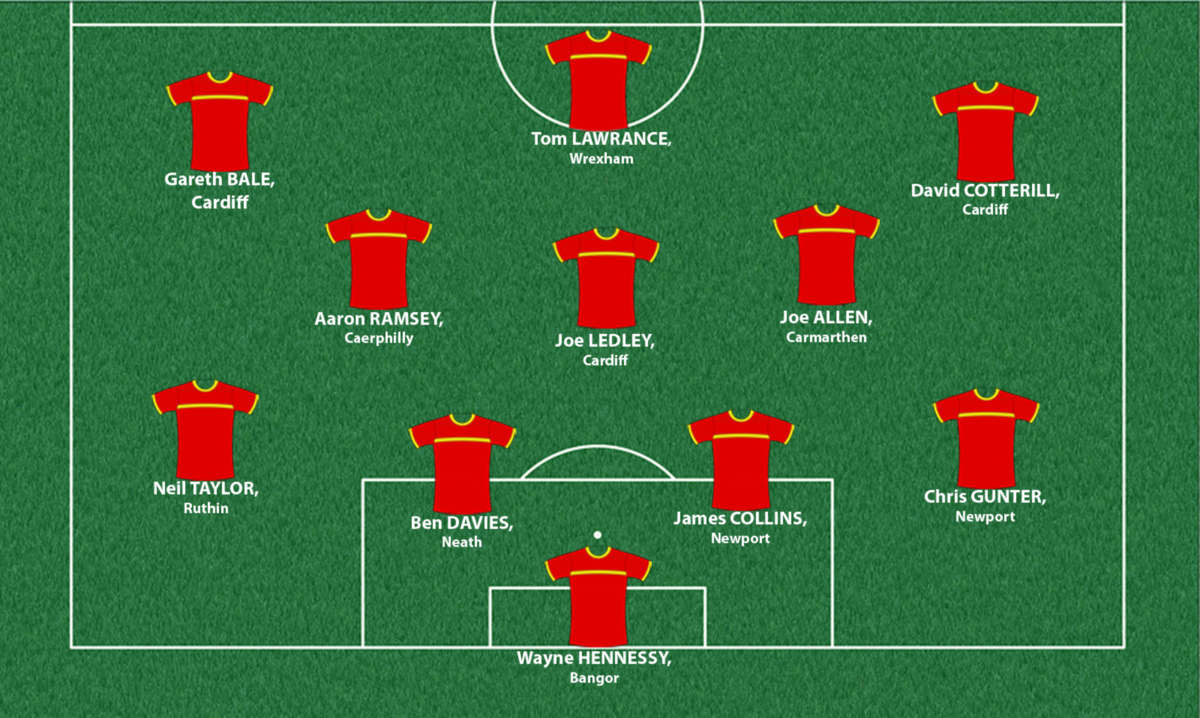Wales
The medieval Welsh represented the survivors of the Celtic Britons, and their territory became the refuge of the older Roman-Briton civilization, that had been in most part pushed out by the Anglo-Saxons.

Coat of arms

Shirt
| Position | First name | Last name | Mjesto rođenja | Like | Dislike | |
|---|---|---|---|---|---|---|
| GK | Danny | WARD | Wrexham |
0 |
0 |
|
| GK | Owain | WILLIAMS | Penygroes |
0 |
0 |
|
| GK | Wayne | HENNESSY | Bangor |
4 |
0 |
|
| DC | Craig | MORGAN | Flint |
0 |
0 |
|
| DC | Danny | GABBIDON | Cwmban |
0 |
0 |
|
| DC | James | COLLINS | Newport |
1 |
0 |
|
| DLC/DMC | Joseph | WALSH | Cardiff |
0 |
0 |
|
| DRL/MR | Adam | MATTHEWS | Swansea |
0 |
0 |
|
| DRL/MR | Chris | GUNTER | Newport |
3 |
0 |
|
| DRL/MR | Jazz | RICHARDS | Swansea |
0 |
0 |
|
| DL | Declan | JOHN | Merthyr Tydfil |
0 |
0 |
|
| DL | Neil | TAYLOR | Ruthin |
0 |
0 |
|
| DLC/ML | Ben | DAVIES | Neath |
4 |
0 |
|
| DRC/DMC | Thomas | LOCKYER | Cardiff |
0 |
0 |
|
| DC/DMC | Regan | POOLE | Cardiff |
1 |
0 |
|
| DMC | David | VAUGHAN | Abergele |
0 |
0 |
|
| DMC | Emyr | HUWS | Llanelli |
0 |
0 |
|
| DMC/DRC | Jordan | WILLIAMS | Bangor |
0 |
0 |
|
| MC | Joe | ALLEN | Carmarthen |
2 |
0 |
|
| MC | Lee | EVANS | Newport |
0 |
0 |
|
| MC | Shaun | MacDONALD | Swansea |
0 |
0 |
|
| AMRL | David | COTTERILL | Cardiff |
1 |
0 |
|
| AMRL | Gareth | BALE | Cardiff |
22 |
2 |
|
| AMRL | Harry | WILSON | Wrexham |
0 |
0 |
|
| SS/AMRL | Tom | LAWRANCE | Wrexham |
3 |
0 |
|
| FRLC | Nathan | BROADHEAD | Bangor |
0 |
0 |
|
| FRLC | Wes | BURNS | Cardiff |
1 |
0 |
(Today part of: Wales)
As a side note, the term “Wælisc” (Welsh) was used by the Anglo-Saxons to indicate the Britons, and that word also signified serfs and foreigners. So had “Walas” (Wales) designated the area they inhabited. The Welsh themselves referred to themselves as “Cymru.” They had not forgotten that once they had belonged to Roman Britain, and the Latin language served as one od the designators of their collective identity, surrounded by the illiterate Saxons, Danes, and the Irish. Their isolation was the very thing that contributed to the development of their native literary tradition.
Compared to England, Wales was not a formulated state. Through the centuries (as was the case in Ireland as well) its society had consisted of a network of small dynastic principalities, territorially distinct, but undefined in the sense of borders and administration, and all of them had been under constant threats of one warlord or another. In Wales, as in the rest of the British Isle, the same process of joining small political units into a bigger one occurred, and consequently, the Kingdom of Gwyneedd, Dyfed, and Glywysing will become the largest of them. Early medieval governments and political identities had been a matter of custom and law, regardless of who the ruler was, so Wales and Ireland had developed customary laws which were applied throughout those lands. Wales was a political entity due to its “Laws of HywelDda,” and Ireland was unified in a similar manner under the “Brehon Law.”
Sources
- Jeremy BLACK, Povijest Britanskih otoka, Zagreb, 2004,
- Adrian HASTINGS, Gradnja nacionaliteta , Rijeka, 2003
- Coat of arms: https://en.wikipedia.org/wiki/Kingdom_of_Gwynedd
